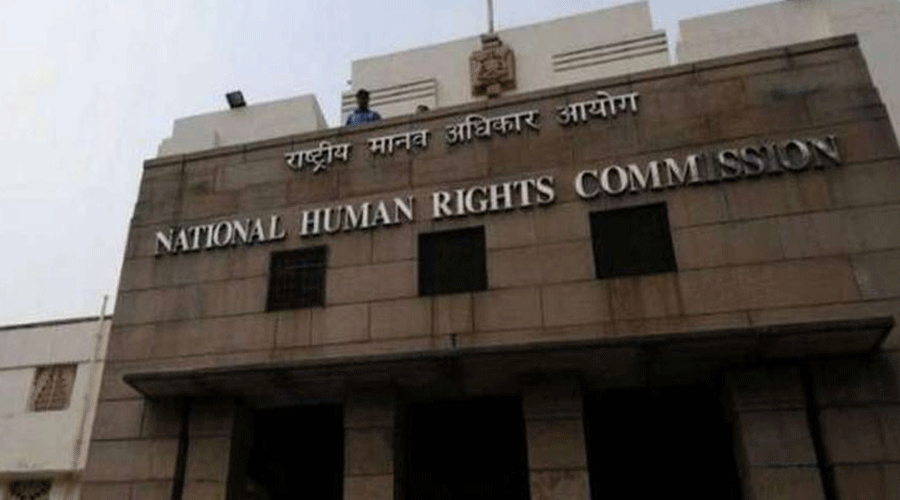The National Human Rights Commission has expressed dismay at the “inhuman and deplorable conditions” at all the 46 government mental health-care institutions in the country and issued notices to the central and state government officials concerned.
“The inhuman and deplorable conditions of the mental health institutes... present (a) sorry state of affairs amounting to infringement of the human rights of mentally ill patients. The cured patients are being kept illegally in the hospitals. There is acute shortage of doctors and staff,” the commission has said.
Earlier, a commission team had visited four government mental hospitals in Gwalior, Agra and Ranchi, while its special rapporteurs had inspected the 42 other institutions.
Notices have been issued to the Union health and family welfare secretary, director-general of health services, state chief secretaries and principal secretaries (health), state directors-general of police, police commissioners in cities, and the directors of the 46 mental institutions.
Detailed action-taken reports have been sought within six weeks from the administrative officials on the following subjects:
(i) How cured patients are being kept illegally in mental hospitals, curtailing their liberty. All such patients are to be sent back to their homes or halfway homes, and accountability fixed.
(ii) Status of the formation of a mental health authority, state mental health review board, state mental health care rules and state mental health care regulations.
(iii) Budget allocations and funds release for mental health institutions.
(iv) State of the infrastructure at the institutes and plans for improvement.
(v) Status and timetable of the recruitment process of health professionals, including hospital staff.
(vi) Measures to de-crowd mental hospitals and create a conducive atmosphere, including hygiene.
(vii) Appointment of professors for MPhil courses on mental health, wherever necessary.
(viii) Status of emergency services, maintenance of electronic data and medical records, measures and initiatives taken for reintegration and rehabilitation of the cured patients.
(ix) Statistics on the discharge of patients over the last five years and their rehabilitation/ reunion with family or community; statistics on how many of them have become inmates again, the reasons for this, and their status.
(x) Government-sanctioned amount for food, and the actual payment.
(xi) Financial or social audit report of the last three years.
The DGPs and commissioners have to submit reports on the status of complaints received or registered relating to the lack of rehabilitation of cured patients or their lack of reintegration with their families; and on the measures taken or proposed to ensure that people cured of mental illness can live with their families and other members of the community.
The reports must also contain details of any assistance taken from the district or state legal services authority.
The NHRC said the Mental Healthcare Act mandates that where it’s not possible for a cured mental patient to live with their family, or where the patient has been abandoned by their family, the appropriate government must provide support, including legal aid, so they can exercise their right to live in a family home.











